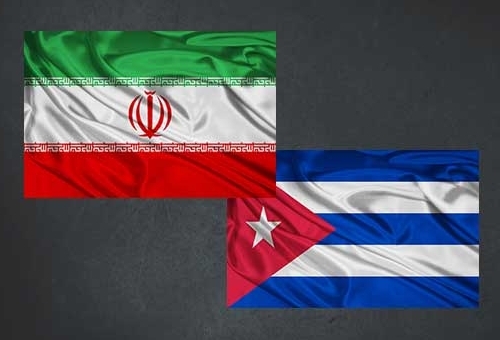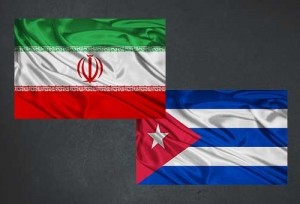Original at Founders Code
When one takes a macro view and goes back in time, the clues were there as proven when the United States sent an envoy to Venezuela for the funeral of Chavez, or when Obama himself received a book from the Venezuelan leader.
Laying the ground work, Obama while on the campaign trail in 2008 reached out to Iran by dispatching an envoy to Tehran. A letter was also passed on from Barack Obama to Iran’s Supreme Leader Ayatollah Ali Khamenei. Then in 2009, Obama announced plans to begin talks with Iran and Ahmadinejad without ‘preconditions’.
The communications continued without notice or fanfare even as yet another letter sent to Iran in 2014 from Obama invited talks about the nuclear deal and Islamic State. President Barack Obama secretly wrote to Iran’s Supreme Leader Ayatollah Ali Khamenei in the middle of last month and described a shared interest in fighting Islamic State militants in Iraq and Syria, according to people briefed on the correspondence.
The letter appeared aimed both at buttressing the campaign against Islamic State and nudging Iran’s religious leader closer to a nuclear deal.
If one thinks there was or is no strategy, guess again. The strategy began in 2008 and it was to side with Iran and cave to all their requests and interests. Those interests include Syria, Lebanon. Venezuela, Cuba and perhaps even more.
Michael Ledeen, an Iran and Middle East expert recently wrote:
The actual strategy is detente first, and then a full alliance with Iran throughout the Middle East and North Africa. It has been on display since before the beginning of the Obama administration. During his first presidential campaign in 2008, Mr. Obama used a secret back channel to Tehran to assure the mullahs that he was a friend of the Islamic Republic, and that they would be very happy with his policies. The secret channel was Ambassador William G. Miller, who served in Iran during the shah’s rule, as chief of staff for the Senate Select Committee on Intelligence, and as ambassador to Ukraine. Ambassador Miller has confirmed to me his conversations with Iranian leaders during the 2008 campaign.
Ever since, President Obama’s quest for an alliance with Iran has been conducted through at least four channels: Iraq, Switzerland (the official U.S. representative to Tehran), Oman, and a variety of American intermediaries, the most notable of whom is probably Valerie Jarrett, his closest adviser. In recent months, Middle Eastern leaders reported personal visits from Ms. Jarrett, who briefed them on her efforts to manage the Iranian relationship. This was confirmed to me by a former high-ranking American official who says he was so informed by several Middle Eastern leaders.
The central theme in Obama’s outreach to Iran is his conviction that the United States has historically played a wicked role in the Middle East, and that the best things he can do for that part of the world is to limit and withdraw American military might and empower our self-declared enemies, whose hostility to traditional American policies he largely shares.
Iran has a long history with Cuba and Venezuela, so reaching renewed diplomatic relations with Cuba and opening mutual embassies should be no surprise when once pays attention to details. It is not unreasonable to question Iran’s early demands of terms of talks and relations where Cuba and Venezuela were part of the conditions. Further, the matter of the Syrian red-line threat made by Obama cannot be dismissed either. Iran has been a deep loyal supporter of Bashir al Assad and Syria, where terror incubates daily.
As noted by Vanessa Lopez: Cuba’s relationships with Iran and Syria have proven to be politically lucrative for the island. Syria has shown itself to be a loyal ally and has increased its political relationship with Cuba over the past five years. Cuba is making great efforts to transform this political relationship into an economically beneficial one; Syria has recently indicated it is willing to engage Cuba more significantly, but it remains to be seen if these statements and memorandums between the two countries will translate into dollars for the Cuban regime. On the other hand, Iran has been completely willing to aid Cuba despite suffering economic losses.
These countries serve to prop up Cuba in the international arena and Iran provides much-needed economic life support. These relationships should be of the utmost concern to the United States, since they place two countries that have been delineated as part of the “axis of evil” closely allied with an anti-American regime only 90 miles off U.S. shores. Cuba’s expertise in espionage and biotechnology can be a significant threat in the hands of these two countries. In its efforts to make Syria an economic supporter, Cuba could be willing to assist it in these areas. Let us not forget also that Cuba was one of the few countries to advocate for the Soviets to use nuclear weapons during the Cuban Missile Crisis. Its ties with a potentially nuclear capable Iran and a resurgent Syria can lead to an unstable situation by our shores – or perhaps more immediately, in Israel and the rest of the Middle East.
Click here for a few headlines between Iran and Cuba since 2013.

 TEHRAN (FNA)- Havana’s Ambassador to Tehran Vladimir Gonzalez called for the further expansion of Iran-Cuba bilateral relations.
TEHRAN (FNA)- Havana’s Ambassador to Tehran Vladimir Gonzalez called for the further expansion of Iran-Cuba bilateral relations.
Speaking at a press conference in Tehran on Wednesday, the Cuban ambassador pointed to the close relations between Tehran and Havana, and said, “There are extensive grounds for the expansion of the relations between Tehran and Havana.”
Anymore questions on what Barack Obama is really doing?
DENISE SIMON is the Senior Research/Intelligence Analyst for Foreign and Domestic Policy for Stand Up America US as well as the aide de camp for MAJOR GENERAL PAUL E. VALLELY, US ARMY (ret).